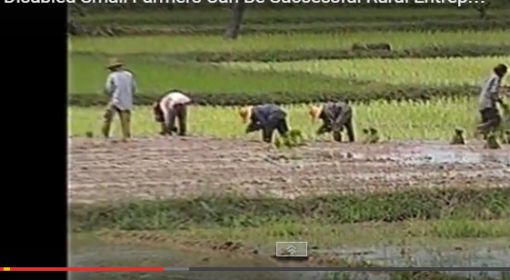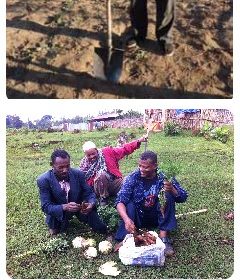It is important that strategies for enablement take into account that people with disabilities and elderly often have a thin resource base and are more exposed and vulnerable. Often the opportunities for engaging disabled or elderly in agriculture and water management are neglected and as a result these people feel excluded. By adapting existing tools, practices and resources a big difference can be made. There are a various types of adaptations, for instance, small mechanization, modified tools or pumps or special functions in agribusiness.
Many adjustments are designed to reduce physical burden or making a task less labor-intensive; for example, modified tools which can be used while sitting in a wheelchair or attaching longer handles to a scythe. In addition, mechanization can also lower the amount of physical labor which is needed. Some types of irrigation systems are more usable for people with a disability than others. Drip- or micro irrigation, for example, is much easier to use than an irrigation system based on canals. Thereby, people with a disability often are less mobile. So making horticulture fields or irrigation systems more accessible directly helps to get them more involved.

Images from: http://swar-technologies.tumblr.com/Products and Flickr
Furthermore, people coping with a handicap can as well be included by giving them tasks in the pre- or post-production of agricultural products. They can help to produce compost or grow plants in nurseries, but also can be involved in the transport of crops or the selling at the (local) market. These tasks are often high-value, physically less demanding and contribute to a higher agricultural productivity.
All these adjustments and tools sound nice and helpful; however, we need to take into account that many people that are living with a disability and their families cannot afford these. Involving disabled and elderly in agriculture is often part of a development project funded by governments or NGO’s and is much more difficult to achieve by the excluded people themselves. Therefore it is also important that the knowledge about these tools and new practices is spread among rural communities in developing countries and that it is possible to buy such adaptations for a small amount of money.
Related Videos:


